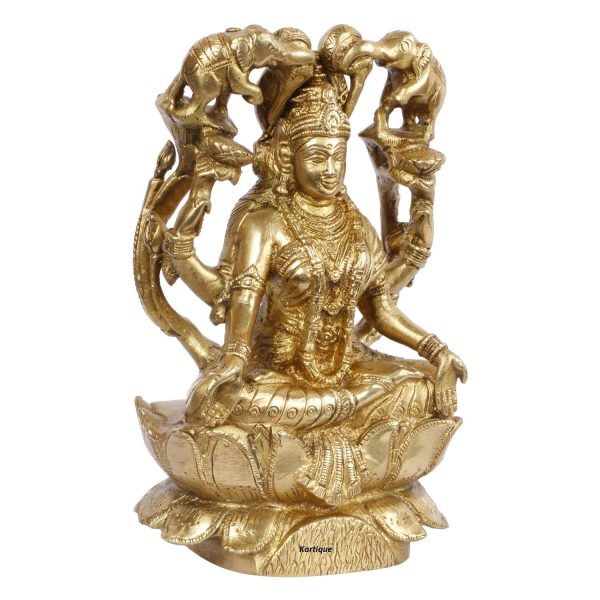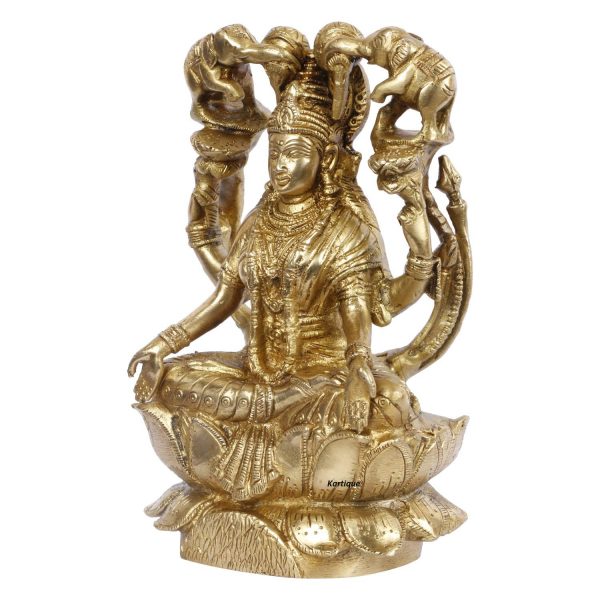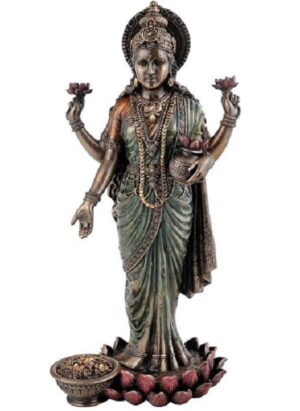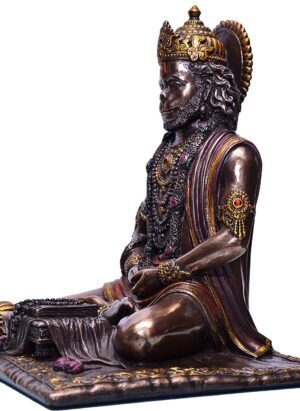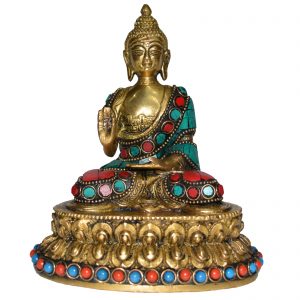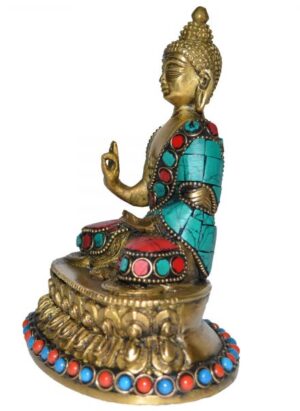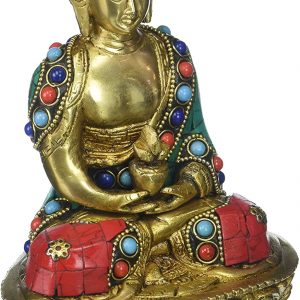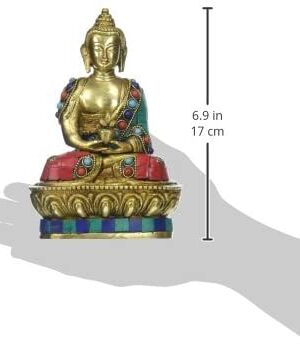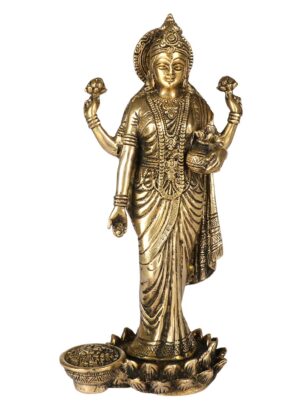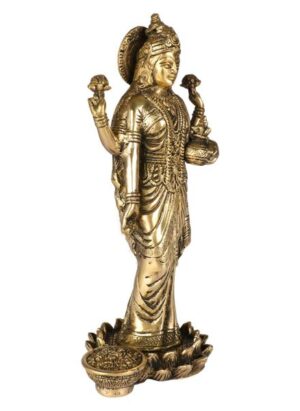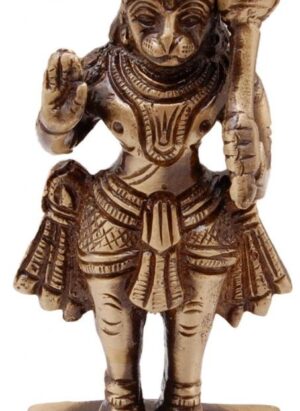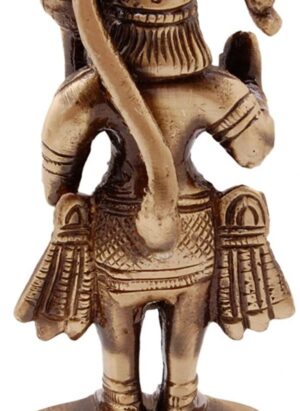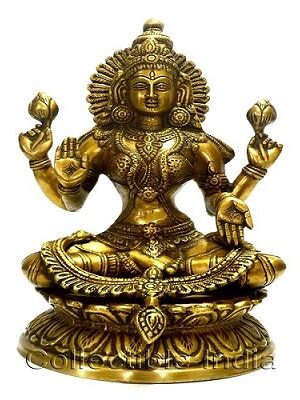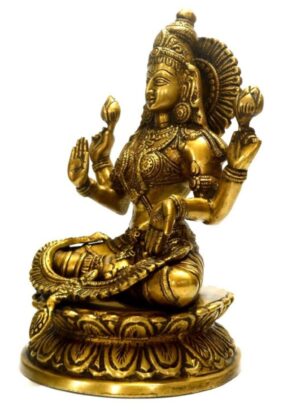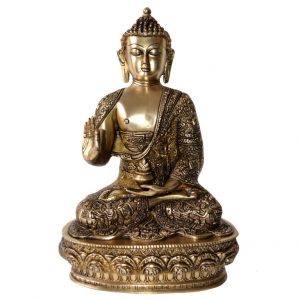- Your cart is empty
- Continue Shopping
Dimension : Length – 5 Inch | Width -2.2 Inch | 7 Inch || Weight 2Kg
Lakshmi epitomizes wealth, prosperity, fortune, and the embodiment of auspiciousness. She is the divine consort of Lord Vishnu. Her four hands represent the four goals namely Dharma, Karma, Artha and Moksha. As the goddess of fortune and beauty, she represents abundance, prosperity, wealth, well-being and harmony. Worshiped by millions of Hindus or followers of Vedic customs, she is also considered as the universal goddess of opulence. Lakshmi idols can be placed at your home for daily worship
Lakshmi Devi is always depicted sitting or standing on a lotus in an endless stream from one of her hands symbolic of when the lotus of wisdom blossoms, the wealth of good and noble qualities appears and Lakshmi’s blessings are present. The word ‘Lakshmi’ is derived from the Sanskrit word “Laksya”, meaning ‘aim’ or ‘goal’, and she is the goddess of wealth and prosperity, both material and spiritual. She emerged during the churning of the Ocean between Devas and Asuras a
The importance attached to the presence of Lakshmi in every household makes Her an essentially family deity. Householders worship Lakshmi for the wellbeing and prosperity of the family. Businessmen and women also regard Her equally and offer Her daily prayers. On the full moon night following Dusshera or Durga Puja, Hindus worship Lakshmi ceremonially at home, pray for Her blessings, and invite neighbors to attend the puja.
Sitting on lotus : The goddess is shown sitting on a lotus. This posture means “Live in the world, but do not be possessed by the world”. The lotus keeps smiling on surface of water. Its origin is in mud, deep under water but its flowering is above the water-surface. Detachment and evolution is the message of this poetic symbol.
